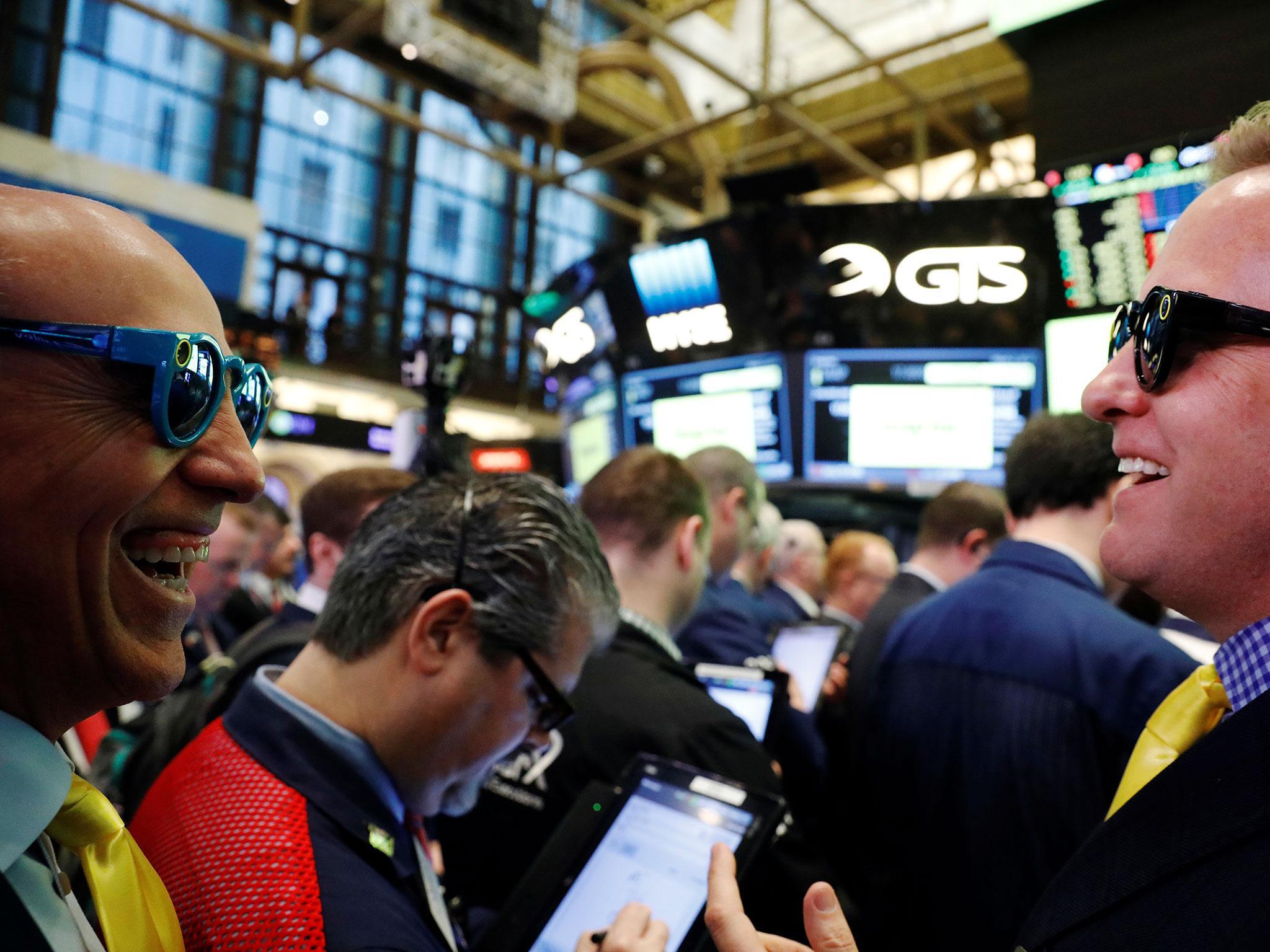Snapchat's parent company's shares rocket 44% on first day of public trading
Stocks in Snap started trading on Thursday at $17, or around £13.90, apiece but ended the day at $24.48 on the New York Stock Exchange

Your support helps us to tell the story
From reproductive rights to climate change to Big Tech, The Independent is on the ground when the story is developing. Whether it's investigating the financials of Elon Musk's pro-Trump PAC or producing our latest documentary, 'The A Word', which shines a light on the American women fighting for reproductive rights, we know how important it is to parse out the facts from the messaging.
At such a critical moment in US history, we need reporters on the ground. Your donation allows us to keep sending journalists to speak to both sides of the story.
The Independent is trusted by Americans across the entire political spectrum. And unlike many other quality news outlets, we choose not to lock Americans out of our reporting and analysis with paywalls. We believe quality journalism should be available to everyone, paid for by those who can afford it.
Your support makes all the difference.Shares in the owner of Snapchat rocketed 44 per cent on their first day of public trading, underscoring just how keen investors had been to take part in the world’s biggest stock market offering in around three years.
Stocks in Snap started trading on Thursday at $17, or around £13.90, a piece but ended the day at $24.48 on the New York Stock Exchange. According to Reuters, the share price hit an intra-day high of $26.05, temporarily giving Snap a market value of $29.1bn.
The deal was the largest initial public offering since Chinese internet giant Alibaba went public in 2014, and the largest technology listing since Twitter.
The IPO was reportedly 10 times subscribed, meaning that shares could have been priced at as much as $19 from the offset, but – citing a source— Reuters reported that the company had wanted to attract longer-term investors, like mutual funds, rather than hedge funds who might sell the shares quickly for a fast profit.
Despite the stellar first-day performance though, some analysts expressed concern around the early surge, questioning the sustainability of Snap’s performance in the long run.
“Based on current price its market cap exceeds the likes of BAE Systems, Anglo American, Aviva, Tesco and Standard Chartered and is about the same as RBS. It’s worth more than WPP,” said Neil Wilson, an analyst at ETX Capital.
“It’s got a bigger market cap than a lot of major companies that deliver far higher, sustained profits than Snap has ever managed,” he says, adding also that it is still a loss-making enterprise.
In the lead up to going public, Snap was forced to contend with some criticism over the pace of user growth. The number of people using the app slowed in the second half of 2016, according to Bloomberg.
The company also upset potential investors earlier this year when it announced that not all shares would carry voting rights, ensuring that two of the company's founders — Evan Spiegel and Robert Murphy – retain control.
Join our commenting forum
Join thought-provoking conversations, follow other Independent readers and see their replies
Comments